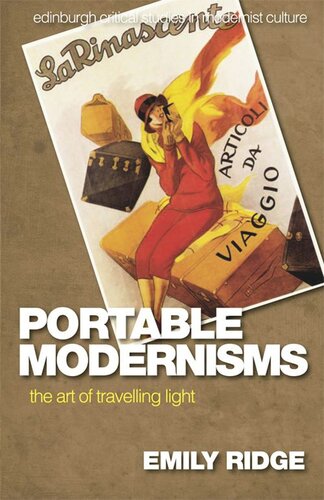

Most ebook files are in PDF format, so you can easily read them using various software such as Foxit Reader or directly on the Google Chrome browser.
Some ebook files are released by publishers in other formats such as .awz, .mobi, .epub, .fb2, etc. You may need to install specific software to read these formats on mobile/PC, such as Calibre.
Please read the tutorial at this link: https://ebookbell.com/faq
We offer FREE conversion to the popular formats you request; however, this may take some time. Therefore, right after payment, please email us, and we will try to provide the service as quickly as possible.
For some exceptional file formats or broken links (if any), please refrain from opening any disputes. Instead, email us first, and we will try to assist within a maximum of 6 hours.
EbookBell Team

4.0
36 reviewsLuggage is an overlooked detail in the stock sketch of the expatriated modernist writer from the valise-fashioned desks of both James Joyce and Vladimir Nabokov to the lost manuscript-laden cases of Ernest Hemingway and Walter Benjamin. While the trope of modernist exile has long been spotlighted, little attention has been given to the material meaning of this condition. What things and objects do modernism’s exiles and émigrés carry with them and how does the act of carriage enter into the modernist picture more broadly? What are the implications and historical resonances of a portable outlook, particularly from the angles of gender, wartime conflict and character conception? Above all, how far does such an outlook impact upon artistic vision? Portability represents the simultaneous transportation and repudiation of domesticity and the home, those key frames of reference in the nineteenth-century novel. This book examines the multifarious ways in which the emergence of a modern culture of portability prompts a radical, if often problematic, departure from Victorian architectural conceptions of fiction towards more movable understandings of form and character.